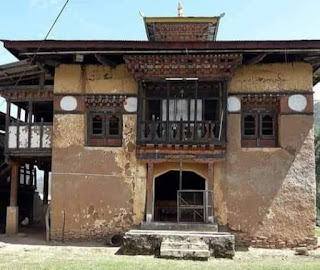Bhutan, a mistaken suicidal spot
It's been a little over a month since I bid farewell to a distant cousin who tragically took his own life at the psychiatric ward within JDWNRH. His parents informed me that he initially struggled with alcohol and then turned to substance abuse. He was in his mid-twenties when he ended his life. As a young boy, he was known for his humor, and many admired his witty character. However, we lost touch until last year.
When I saw him again, he seemed okay despite being unemployed. I noticed him a few times collecting parking tickets in Thimphu, and rumors circulated about his involvement with drugs. He once asked me to help him find a job, expressing his desire to change for the better if given the opportunity. Considering his qualifications and experience, his request was reasonable. However, by the time I started looking for job options, it was too late, and he had already sunk into severe depression. There were instances of him becoming violent towards his parents, leading to his admission to the psychiatric ward.
It became clear to me that he needed professional help and should have been directed to a rehabilitation center. Unfortunately, before I could arrange anything, he took his own life. His parents, especially my uncle (his father), struggled immensely with the pain of losing their son so young, and we were all deeply affected. I couldn't shake off the guilt of not being able to find him a job. However, in today's challenging job market, finding employment is akin to searching for stars in broad daylight. My role as an MP offers little influence in job placements, as I have over a hundred job applications pending without a single successful recruitment.
At his cremation, I pondered why he chose to end his life, a question that extends to others who make similar decisions. Reflecting on my own life's challenges, I found moments of deep struggle and depression, yet I never considered suicide. During my school years, my family faced financial hardships, but my determination for education kept me going. I recall saving money for emergencies, even helping a friend in need despite my limited means. Suicide was a foreign concept to us then, unlike today where it seems almost fashionable.
Today's youth easily succumb to despair, whether due to academic pressures or trivial setbacks. The job market's competitiveness adds to the stress, with many graduates solely aspiring for civil service positions, shunning private sector opportunities due to perceived job insecurity. This mindset often leads to disappointment and self-blame, contributing to mental instability among our youth.
Globally, the rise in adult suicides is alarming, attributed to various factors like financial struggles, relationship issues, and work-related stress. Bhutan, despite its blessings of free education and healthcare, is not immune to these challenges. Yet, with the support of NGOs and governmental initiatives, there are avenues for assistance and growth. The high suicide rates in Bhutan underscore the urgent need for mental health awareness and support systems.
In the last few years, Bhutan has seen a significant number of suicides, reflecting a concerning trend. It's crucial to address the root causes of mental health issues and provide accessible support to prevent further tragedies.



Comments
Post a Comment